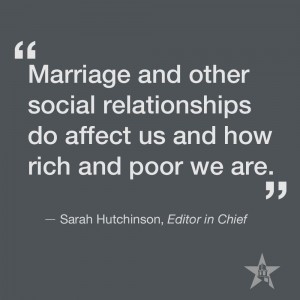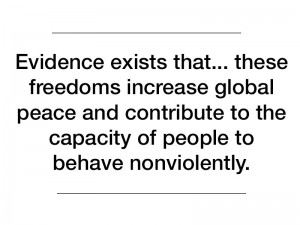A growing number of Americans, academics, and politicians herald a rise in minimum wage as a solution to fight poverty. The concept seems simple, politicians agree what is a livable minimum wage and it becomes the law of the land. However, government solutions to economics typically resemble Don Quixote tilting at windmills.
While politicians may concoct a faux pas minimum or living wage, real wages are determined by a marketplace, not the government. As economist Paul Krugman once remarked, “Wages are a market price—determined by supply and demand, the same as the price of apples or coal.” In capitalist societies, corporations will pay dearly for specific skills or if labor is in short supply. Just ask Wal-Mart workers in Wilston, North Dakota who start at $17.40 an hour.
 Now that government sets the minimum wage, employers must decide if the wage, benefits, taxes and training are worth the value of the task at hand. People with no experience or no diploma find it hard to enter the workforce. They are impeded from opportunity of economic mobility into future, better jobs. You won’t move up the ladder if you can’t get on the ladder.
Now that government sets the minimum wage, employers must decide if the wage, benefits, taxes and training are worth the value of the task at hand. People with no experience or no diploma find it hard to enter the workforce. They are impeded from opportunity of economic mobility into future, better jobs. You won’t move up the ladder if you can’t get on the ladder.
Minimum wage not only shrinks job market perspectives, but also has a weak correlation to low wage workers and poverty, according to U.S. Census Bureau data. Economist Joseph Sabia found minimum wage increases on both the state and federal level between 2003 and 2007 “had no effect on state poverty rates.” According to Michael Strain of the American Enterprise Institute, “Less than 3% of hourly wage earners over the age of 24 earn at or below the federal minimum.” Most minimum wage earners are teenagers who are seeking work experience. These same teens face a 24% unemployment rate. It could be argued that high school and college workers with the need for experience should forgo any minimum wage. In the past, college students voluntarily traded labor for the experience gained from internship.
I discovered how differently fast food restaurants were operated while travelling around Europe playing baseball this summer. At a McDonald’s in La Rochelle, France, there was no counter person taking orders, instead it was a computer. Why would an American corporation be more technologically advanced in France than in their domestic franchises? I asked a French worker, who said McDonald’s found it more economically feasible to buy an expensive computer system rather than pay France’s minimum wage of $12.09 plus a multitude of benefits and payroll taxes gifted by French politicians.
When labor is costly and can be replaced by machines, most businesses invest in capital intensive systems. Even in the US, we are now witnessing technology replace the demand for workers. Check out your local bank with half the amount of tellers as it had ten years ago. Home Depot has automated cashiers. At Applebee’s, your “Neighborhood Grill and Bar,” don’t expect Flo, your favorite, neighborly waitress, to take your nachos order in the future. “Presto”—the tablet computer—has secretly been added to your table, next to the salt and pepper shakers. Since Presto works for free, should we tip Presto more than the customary 15%?
Small businesses are the engine of our economy. There should be little or no regulation on them, so long as it does not affect the safety of their employees or the public. Small businesses are typically underfunded and unable to immediately buy systems to replace people. In fact, these businesses can thrive by giving a human-touch experience versus their larger counterparts. However, the more we increase and mandate minimum wages and fringe benefits, once negotiated privately by consenting adults, the more we increase the problems we see in France. George W. Bush once quipped, “The trouble with the French is that they don’t have a word for entrepreneur.” If we keep on passing minimum wage laws, this country might not have a word for enterprise.



